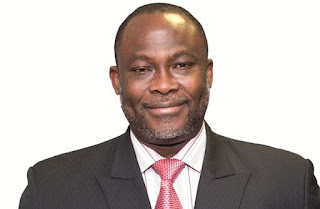Turning Talent into Skills and Skills into Success
Author: Stephen Downes
Go to Source
The challenge for everyone is to find out how gto give back before moving to the next level of existence. Mentorship is one very important way to do so.
Also to pick up on what Jef said about talent and passion. It’s a very important dimension of this discussion. But for those of us in Cote d’Ivoire, very few will say they want to be framers or policemen, garbage collectors, work that may not be pleasant. They want to be rock stars.
We have to work through Maslow’s hierarchy here. There are fundamentals of economics that we have not yet mastered needed in order to make this happen. Cote d’Ivoire is a poor country and so is mine (Ghana), and now after 60 years of independence we have only now looked at how to pool production.
We grow cocoa and it’s processed in Belgium. Yet how many of us can write a one-page summary of how cocoa is processed. It was not taught to us. I ask many people, they can’t do it. They know about music, dancing, other things.
If you go to Ghana today to ask people to write a one-page summary of how rock is processed into gold, they can’t do it. I went to three universities and asked them, and except for one that specializes in kines, they can’t do it.
So as much as I respect the other views, in our countries, our challenge is employment, and job creation. We need to grow, so people can really get jobs. So we need to learn to process gold, or diamonds, etc.
Looking at the purpose of learning:
– acquire knowledge “to be” – UNESCO1972
– learning ‘for the treasure within”
etc.
The state of African education. 20% of children 6-11 out of school. 33% of children 13-14. 60% of youth 16-17. 5 million boys will never go to school – they go to fishing, of farming, or go to markets. 50% of the workforce is illiterate. They can’t read or write in any language. But between 1990-2018 primary enrollment tripled from 62 million to more than 200 million today.
Where skills are really needed – I appreciate what other countries have done. Technical and Vocational Education and Training (TVET) enrollment is less than 10% of senior high school youth. It gets about 2-6% of national funds. We’re not getting enough young people to do this.
We missed the agricultural age, the industrial age, and we are behind in the information age.
Africa is facing a bigger skills training challenge. As we speak we have 200 million youth age 15-35. By 2049 Africa will have the world’s largest labor force.
Africa;s skills development must be directly reflated to economic structures.
The new workforce needs new kinds of training. More literacy, more adult education. Churches and Moques should be active. Radio and TV should be involved.
We need to catch up to meet the 4th industrial age. But there are fundamentals. We need the basic skills. Stakeholder ust work together to avoid an unemployment tim bomb.

